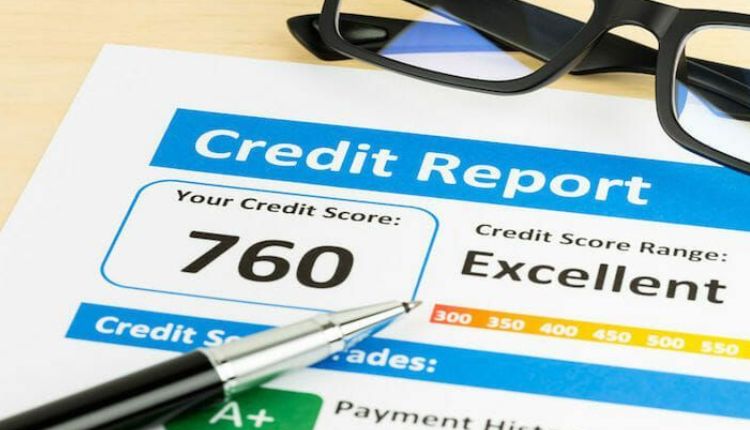
Having a great credit score is important for a number of reasons. When you have built a strong credit score, you enjoy lower interest rates, higher loans, and an easier application process when you’re applying for mortgages and credit cards.
Improving your credit score and, more importantly, maintaining a great rating is beneficial in a number of ways. Lenders will often look at your credit score when deciding whether or not to approve your loan application.
If you have a poor credit rating, you’re less likely to be accepted. Conversely, if you’ve built a strong score, the lender will feel more comfortable lending you a large sum of money.
A great credit score also enables you to save money more easily on things like loans and contracts. It will also cut your costs for things like insurance deposits, house deposits, and utilities.
Guide to Maintaining a Great Credit Score
It’s important to understand more about your credit score. Doing so will make it easier for you to improve and maintain your rating and get approval for your mortgage or car loan. If you’re not sure where to start when it comes to boosting your credit score, here are some top tips that you need to know.
1. Pay Your Bills On Time
Regularly paying your bills on time not only makes your life easier but also boosts your credit score. This includes paying your utility bills, monthly phone contracts, credit cards, and loan repayments without delay.
Even when you’re not using a third-party service, you should still make a conscious effort to avoid late or missing payments. Any form of payment, whether it’s for your rent, council tax, car finance, or credit card loans, gets reported to credit bureaus and impacts your credit score.
2. Don’t Close Your Old Credit Cards
It might seem counteractive to keep your old credit cards open. After all, if you’re not using them, it probably makes sense to close them. However, the opposite is true.
When you close a credit card, the provider or issuer of the card informs the credit bureaus. This can negatively affect your credit rating because it reduces the number of active accounts that you’re maintaining.
Your credit score calculation pays less attention to closed credit card accounts. Even if you paid all of your loans on time and had no issues with the credit card when it was active, this isn’t taken into account once the card is deactivated.
After a decade, the credit bureaus will completely remove the closed credit card from your account, meaning you lose the credit history altogether. But till then, it’s much better to keep the accounts open so that they can positively contribute to your credit rating.
3. Minimize Your Credit Utilization
Credit utilization refers to how much you use your credit limit. For example, if your limit is $1,000 and you have used $200, your credit utilization is 20%.
Ideally, you should aim for low credit utilization. Lenders will be more inclined to approve your applications if your utilization percentage is below 30%.
Having a low credit score shows lenders that you’re not borrowing or spending excessive amounts of money relative to your limit. It reflects great money management skills and increases your trustworthiness as a potential borrower.
4. Avoid Opening Several Credit Cards
When you have multiple credit cards, it can look bad to lenders and reduces your credit rating. This is especially the case if you open multiple credit cards in a short space of time and reach your credit limits.
Having lots of active credit cards makes you a riskier borrower, and lenders are less likely to lend you large sums of money if this is the case.
Plus, opening a new credit card can temporarily lower your credit score. So, if you plan on applying for a secured loan in the near future, avoid applying for new cards or maxing them out.
Only apply for a new card if it’s absolutely necessary. In most cases, it’s better to increase the limit on your existing credit cards than to open a new one.
5. Build Your Credit History
If you have little to no credit history, it can result in a low or non-existent credit score. When you come to apply for a loan from a lender, this can work against you.
Many young adults who are applying for their first mortgage have trouble getting their application approved because they have never borrowed or repaid large loans in the past.
To build up your credit history, consider opening a credit card or getting your next vehicle on finance. As long as you’re consistent and reliable with your repayments, your credit score will increase, making it easier when you apply for your first loan.
6. Pay Attention to Your Credit Rating
Keep a close eye on your credit rating so you can identify whether you’re doing the right things or not. If your credit report doesn’t look quite how you’d like it to, you can take the necessary steps to change it.
Checking your credit report also enables you to identify errors or mistakes so you can quickly rectify them and prevent them from negatively affecting your credit score.
Related posts:


Entertainment
KemonoParty: Where Creativity and Community Collide!
Categories
- Apps (1)
- Automotive (23)
- Beauty (7)
- Business (122)
- Celebrities (2)
- Digital Marketing (21)
- Ecommerce (2)
- Education (22)
- Entertainment (39)
- Events (6)
- Fashion (1)
- Features (4)
- Finance (1)
- Fitness (10)
- Food (2)
- Forex & Crypto (22)
- General (116)
- Health (48)
- House (61)
- Lifestyle (57)
- Marketing (8)
- Parenting (3)
- Pets (10)
- Real Estate (8)
- Safety and Security (14)
- Social Media (31)
- Sports (138)
- Technology (73)
- Travel (23)






















